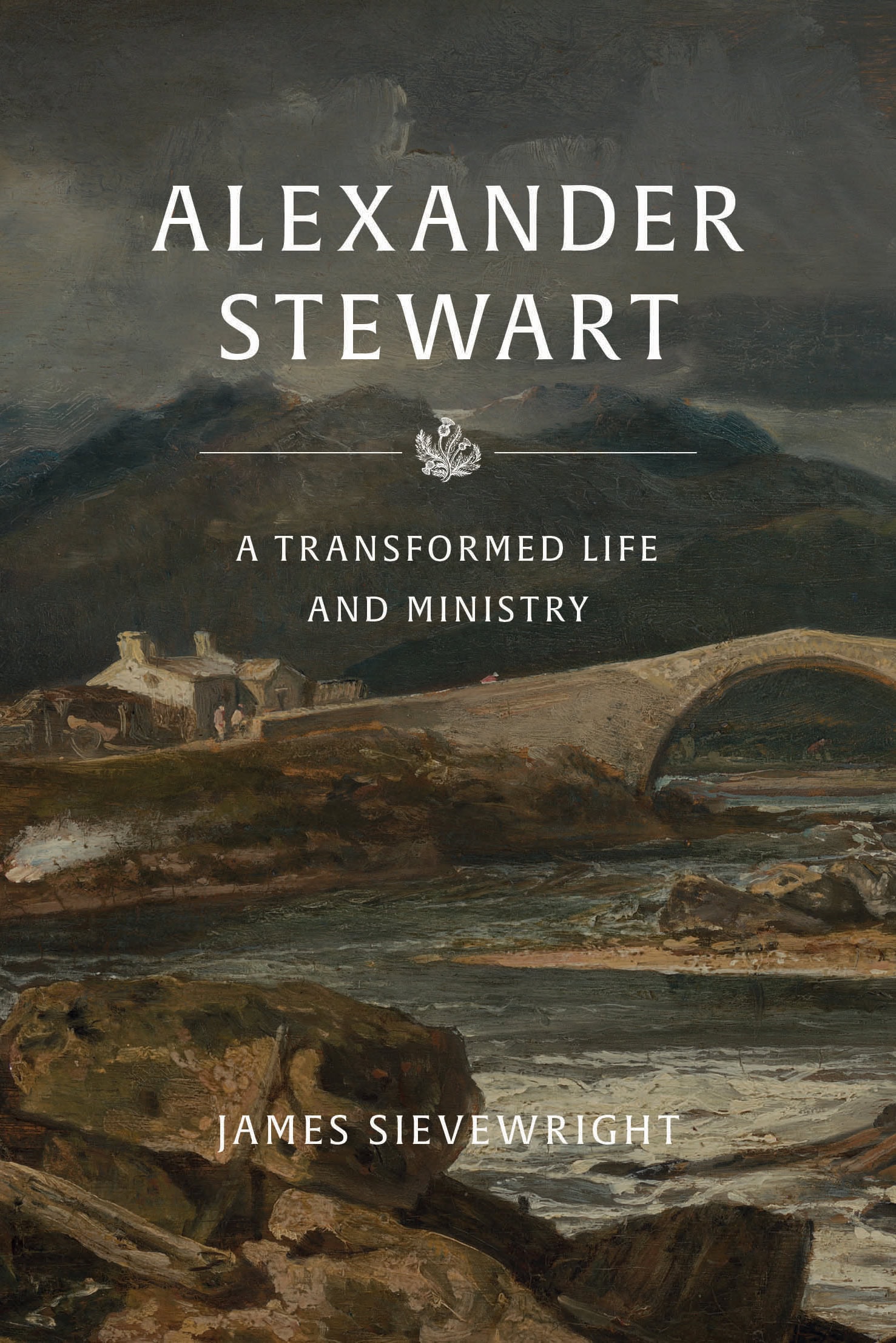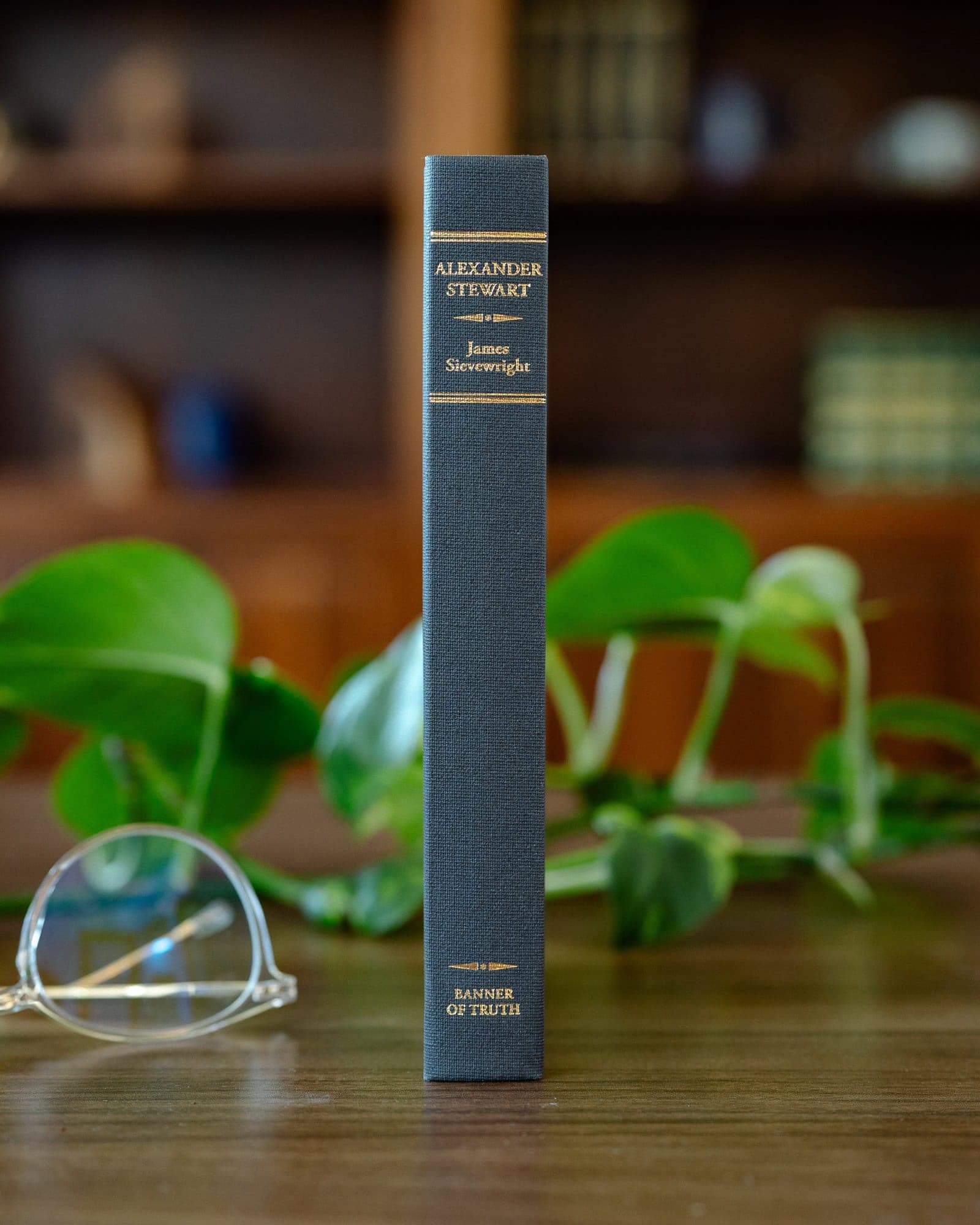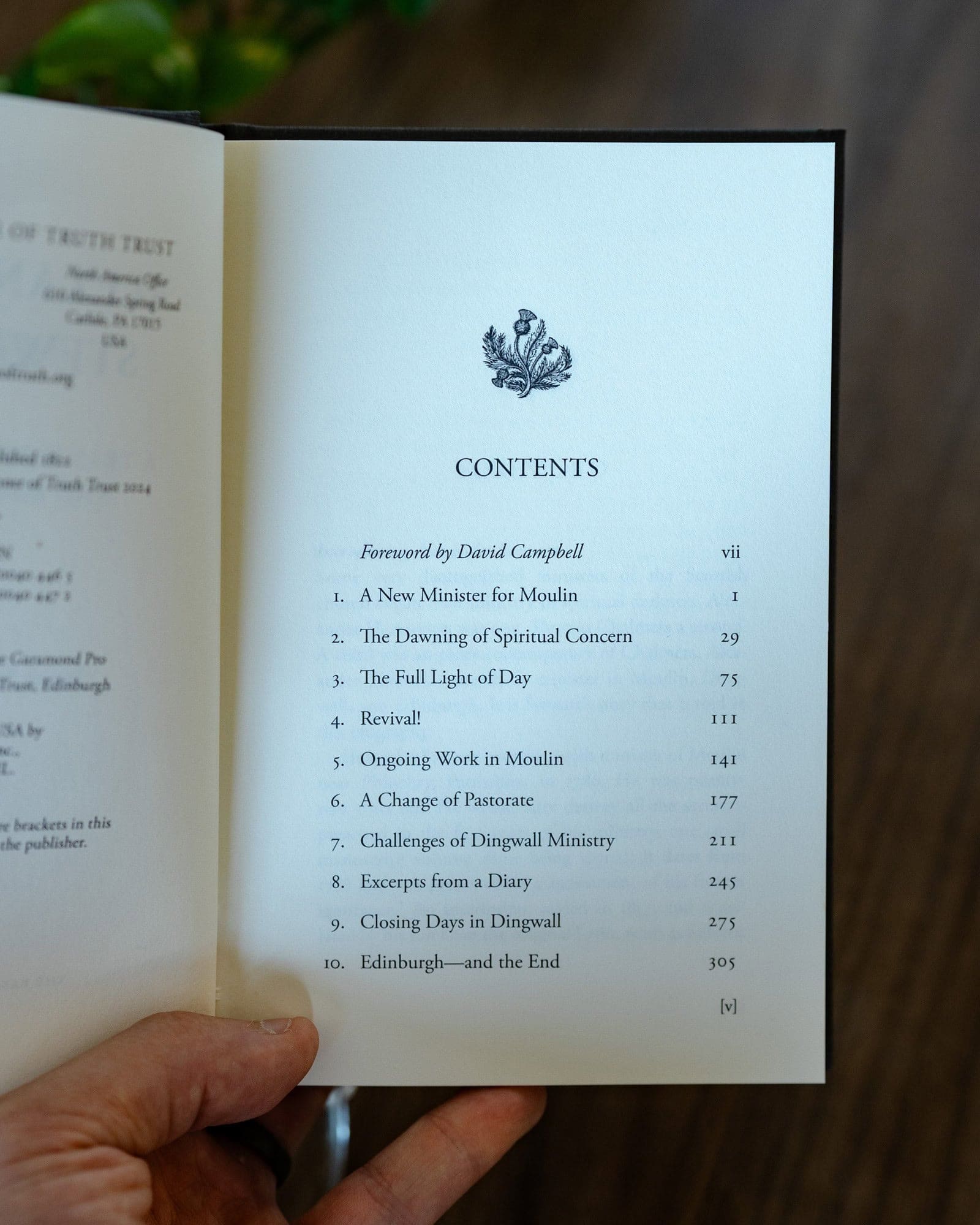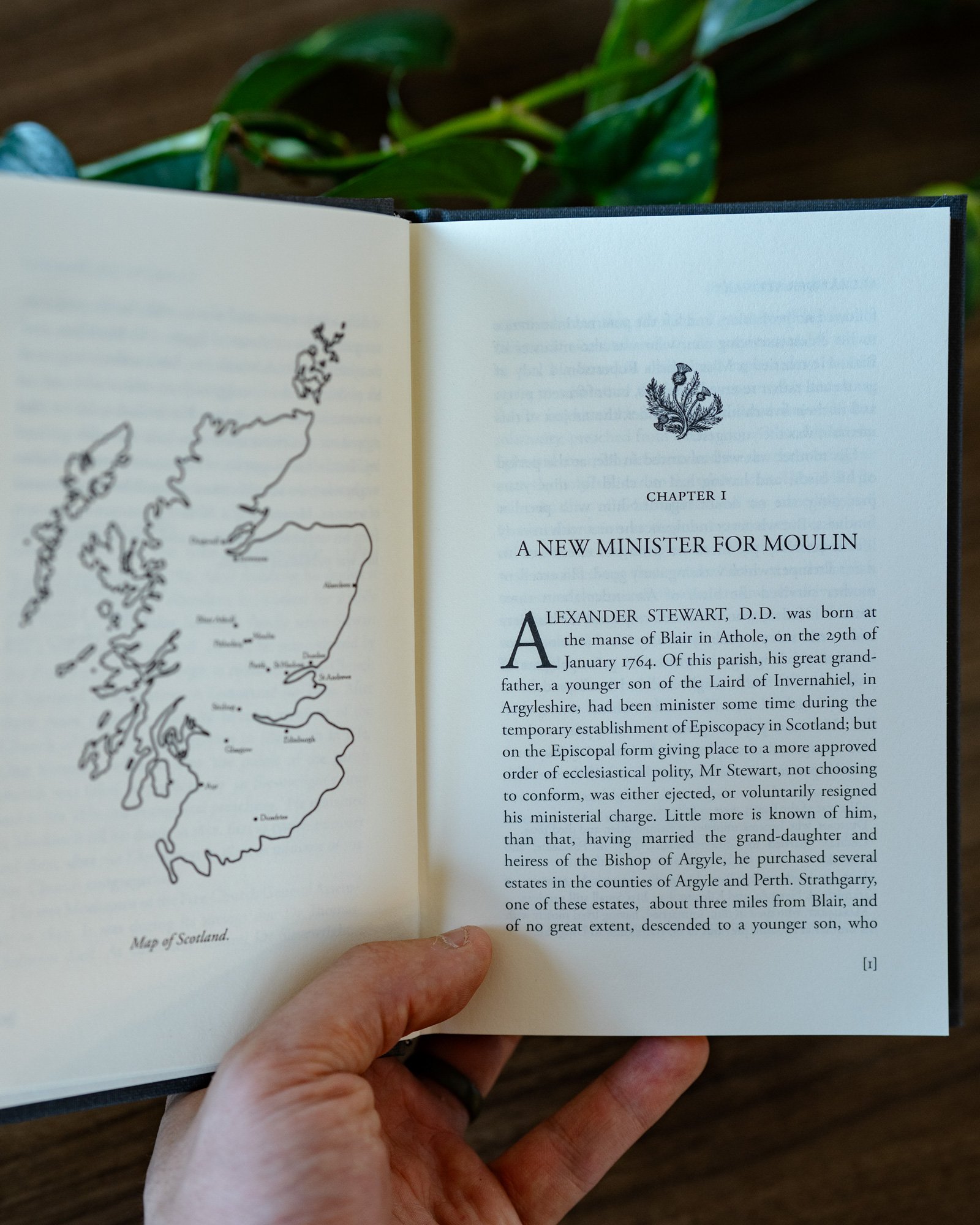Alexander Stewart of Moulin
| Weight | 0.40 kg |
|---|---|
| Dimensions | 12.8 × 2.6 × 18.9 cm |
| ISBN | 9781800404465 |
| Binding | Cloth-bound |
| Format | Book |
| Topic | Conversion, Church and Ministry |
| Original Pub. Date | 1822 |
| Banner Pub. Date | 2024 |
| Page Count | 352 |
*New Title*
Book Description
In 1786, at the age of twenty-two, Alexander Stewart became parish minister of Moulin, near Pitlochry, Scotland. He was as yet unconverted. Sermons from those early years he would later denounce as ‘youthful trifles, produced in the season of ignorance and darkness, possessing nothing of the savour of the gospel, abounding in errors, fit only to be pitied, fit only to be destroyed.’ When the change came it deeply impacted not only his preaching but his congregation. At the time of his settlement in Moulin most were as ignorant of the gospel as he was. As he puts it himself, ‘The opinion of their own works recommending them to the favour of God, and procuring a reward from his bounty, was almost universal.’ Now they began to think as differently about such things as their minister did. Indeed, it was not long before Moulin was in the grip of a revival that resulted in many conversions.
James Sievewright’s biography, long out of print, is an invaluable account of the steps by which Stewart was led from darkness to light, of the revival that followed, and of Stewart’s subsequent ministries in Dingwall and in Edinburgh. It introduces us to David Black, the young evangelical minister who played a major role in Stewart’s conversion, and is enriched by a selection of the letters that passed between them. It shows us, too, what a remarkable and far-reaching ministry an unconverted minister may one day exercise if God should be pleased to save him.
Table of Contents Expand ↓
| Foreword by David Campbell | vii | |
| 1. | A New Minister for Moulin | 1 |
| 2. | The Dawning of Spiritual Concern | 29 |
| 3. | The Full Light of Day | 75 |
| 4. | Revival! | 111 |
| 5. | Ongoing Work in Moulin | 141 |
| 6. | A Change of Pastorate | 177 |
| 7. | Challenges of Dingwall Ministry | 211 |
| 8. | Excerpts from a Diary | 245 |
| 9. | Closing Days in Dingwall | 275 |
| 10. | Edinburgh—and the End | 305 |
More items to consider:

Description
*New Title* Book Description In 1786, at the age of twenty-two, Alexander Stewart became parish minister of Moulin, near Pitlochry, Scotland. He was as yet unconverted. Sermons from those early years he would later denounce as ‘youthful trifles, produced in the season of ignorance and darkness, possessing nothing of the savour of the gospel, abounding […]

Description
*New Title* Book Description In 1786, at the age of twenty-two, Alexander Stewart became parish minister of Moulin, near Pitlochry, Scotland. He was as yet unconverted. Sermons from those early years he would later denounce as ‘youthful trifles, produced in the season of ignorance and darkness, possessing nothing of the savour of the gospel, abounding […]

Description
*New Title* Book Description In 1786, at the age of twenty-two, Alexander Stewart became parish minister of Moulin, near Pitlochry, Scotland. He was as yet unconverted. Sermons from those early years he would later denounce as ‘youthful trifles, produced in the season of ignorance and darkness, possessing nothing of the savour of the gospel, abounding […]







marcdanielrivera –
Alexander Stewart of Moulin by James Sievewright is a biography with a stirring narrative of spiritual transformation, pastoral dedication, and the far-reaching impact of the gospel. Published by Banner of Truth in their signature small clothbound format, this volume revives the story of a remarkable Scottish minister whose life and ministry were changed by the grace of God.
Appointed as the parish minister of Moulin, Scotland, in 1786 at the tender age of twenty-two, Stewart initially approached his role with an unconverted heart. By his admission, his early sermons were devoid of gospel truths and riddled with theological errors. Yet, through a series of providential encounters—most notably with David Black, the “M’Cheyne of his day”—and exposure to writings by men such as John Newton and Thomas Scott, Stewart experienced a profound awakening.
This transformation was not merely intellectual or emotional, but theological and deeply spiritual. Stewart’s newfound understanding of doctrines such as justification by faith and the necessity of the Holy Spirit’s work not only transformed his preaching but also became the catalyst for a revival in Moulin.
One of the most compelling sections of the book is the account of the revival that swept through Moulin following Stewart’s conversion. The once spiritually indifferent congregation was profoundly impacted by his gospel-centered preaching, resulting in widespread conversions and a renewed hunger for the things of God. This revival is a powerful testimony to how God can use even the most unlikely instruments to accomplish His purposes.
The biography also traces Stewart’s later ministries in Dingwall and Edinburgh, highlighting his pastoral challenges and triumphs. Particularly moving are the excerpts from his diary, which provide a window into the struggles and joys of his ministry, as well as his unwavering dependence on God.
James Sievewright, a contemporary of Stewart and an insightful biographer, enriches the narrative with historical and personal context. He also draws upon letters from Stewart which charts his growing understanding of divine truths and provides intimate glimpses into his spiritual journey.
The original memoir, published in 1822, included sermons alongside the biographical narrative. However, this reprint focuses exclusively on the biography, omitting the sermons to streamline the reading experience. While some might miss the inclusion of Stewart’s sermons, the decision to prioritize the narrative enhances its accessibility and readability for modern audiences.
Final thoughts:
Alexander Stewart’s story is a vivid reminder of the power of the gospel. His life illustrates that God’s grace is not bound by human limitations or failings. From a young, unconverted minister preaching “youthful trifles” to a spiritual shepherd instrumental in a revival, Stewart’s life and ministry are an encouragement to all who labor in this life. This biography offers a wealth of insights and spiritual edification.
Robin Gray –
This book offers a rich spiritual repast.
Alexander Stewart’s story is deeply interesting for several reasons, not least his conversion whilst already a minister, and the subsequent revival in the parish of Moulin. However, readers will also find the account of his years in Dingwall and Edinburgh offering much in the way of insight into Stewart’s piety, and the more general spiritual atmosphere in these places.
Sievewright, himself a fascinating character, ably and eruditely guides the reader through Stewart’s life and ministry, offering helpful reflections on questions of the day, such as the preference of many landowners to present Moderate ministers rather than Evangelicals to the congregations over which they exercised the right of patronage.
One of the unique attractions of this book lies in the fact that we see Stewart’s whole heart and outlook changing through his correspondence with the Rev. David Black. Black’s sensitive and able spiritual guidance was clearly blessed of God, whilst the providential visit of Charles Simeon to Moulin was the final link in the chain that led to Stewarts’ conversion. The correspondence begins with Stewart writing, as it were, as a blind man groping for the light. With almost every exchange, Black directs him further on the path to truth. Then, in the wake of Simeon’s visit, Stewart’s letters radiate as those of one whose eyes have been opened.
It is also interesting to note that early on in their friendship, Black gave Stewart a copy of Thomas Scott’s The Force of Truth, another account of one converted whilst already a minister. It seems Black was praying that what God had graciously wrought in Scott, he would also do in Stewart. This He did, and the results redound to His glory in the transformed life and ministry of Alexander Stewart.
I highly recommend this book.